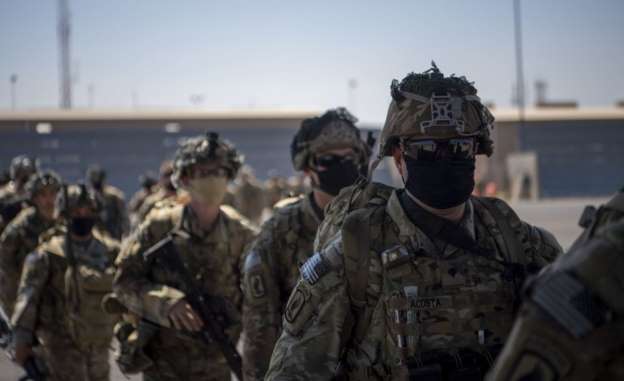
Even so, violence against NATO partners operating in the region has increased. For instance, on Monday, the Italian ambassador to Congo was killed in a roadside ambush. Earlier this year, French troops who were part of the U.S.-supported Operation Barhkane in the Sahel lost their lives in extremist attacks.
“The violence in this region has increased precipitously,” a U.S. Africa Command official said. “Terrorist attacks in the tri-border region of Mali, Burkina Faso, and Niger doubled from 2018 to 2019.”
U.S. Army Europe and Africa chief Gen. Chris Cavoli described a “continuing level of violence and activity by extremist organizations” on the African continent that requires persistent U.S. attention.
The recent consolidation of the Army’s Europe and Africa forces is designed to increase partnerships with NATO and European allies, reduce duplication of efforts, and better target terrorists, Cavoli said.
“We have better visibility over what we and they are doing in Africa, and we can de-conflict where we’re redundant,” the commander said. “We can see where the gaps are and fill in.”
‘Al Qaeda’s roots are in Africa’
U.S. Africa Command told the Washington Examiner Tuesday that between 5,200 and 5,700 U.S. military personnel are on the continent at any given time. The majority, about 4,300, is in East Africa, home to the Somali terror group al Shabab. The U.S. maintains its only permanent presence in Africa at Camp Lemonnier in nearby Djibouti.
“Al Qaeda’s roots are in Africa,” an Africa Command official said. “As it has faced pressure in other parts of the world, it has increasingly shifted its focus on its capabilities in Africa.”
The official described an al Shabab presence in the East; al Qaeda in the Islamic Maghreb to the north and west through the affiliate Jama’at Nusrat al Islam wal-Muslimin; and ISIS networks in the Sahel and Lake Chad Basin.
In 2019 alone, al Shabab committed more than 850 terrorist attacks and maintains ambitions to strike the U.S. homeland.
In December, former President Donald Trump ordered some 800 U.S. troops out of Somalia, in part to fulfill a campaign promise to extract American soldiers from far-flung conflicts.
“Our repositioning from Somalia does not change our commitment to maintaining the pressure on the violent extremists and those that support them in that region,” Maj. Gen. Andrew Rohling, commander of U.S. Army Africa, told the Washington Examiner.
“Our tasks and our commitment remains the same,” he said in response to a question about how the U.S. continues to train the elite Somali Danab Brigade. “The Danab remains the most well-trained and capable force in Somalia.”
Cavoli said the new Army consolidation will allow him to leverage European relationships for joint objectives on the continent.
“I have these natural relationships with the leaders of all those armies,” he said. “There was a time when our partnership sort of didn’t include what they were doing in Africa. Now it does.”
Cavoli described the French-led Partner Armies in West Africa, or PAWA, coordination center in Senegal.
“They’re setting up this center where we will coordinate, willing nations will come in and coordinate our security assistance activities,” he told the Washington Examiner. “To make sure that we’re as efficient and as effective as possible.”
America’s Africa operations have long been under intense scrutiny.
Skepticism rose in January 2020 after American troops at a Kenyan base in Manda Bay were overrun. One American soldier and two contractors were killed in an hour-long gun battle with al Shabab terrorists.
The Defense Department has yet to release its findings from an investigation on the incident.
Trump Defense Secretary Mark Esper promised the U.S. would pull back and allow Europeans to take the lead on the continent. Trump also promised to relocate U.S. Africa Command from Stuttgart, Germany, but gave no location. While that decision is now under review by the Biden administration, a global force posture review lingers over Africa Command planners.
Defense Secretary Lloyd Austin is expected to make force movements as early as June that may affect the U.S. presence on the continent. Meanwhile, Army planners in Africa are already ramping up coordination with partners.
By June, Africom’s flagship African Lion exercise will, for the first time, involve Italian troops and a command-and-control in Florence coordinating the activity of some 10,000 troops from American and partner militaries for the annual exercise in North Africa.
“Solutions require international cooperation and support,” the Africom official said. “Otherwise, today’s threats will cross borders.”


